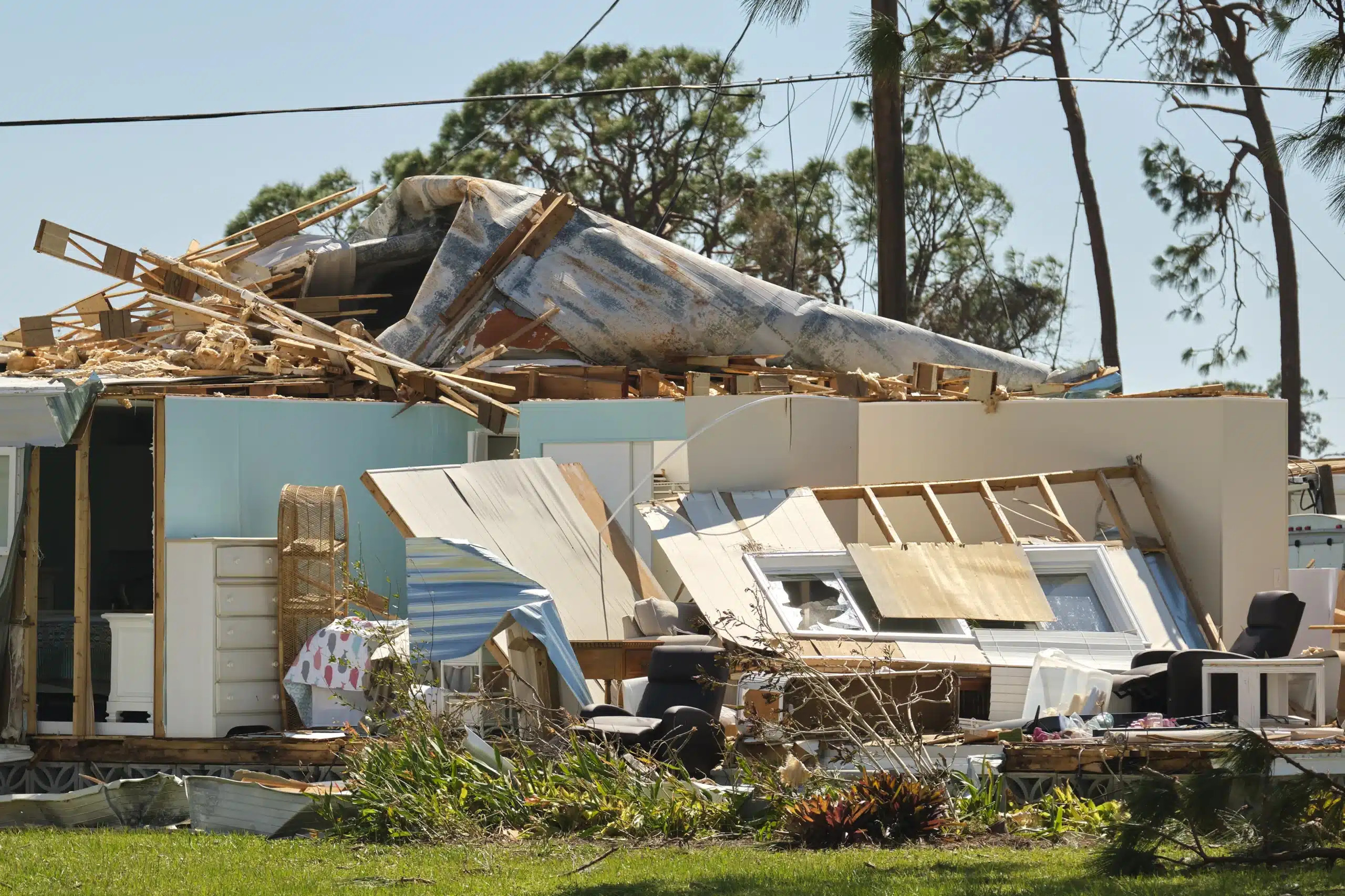
After a hurricane, you may be concerned about whether your homeowner’s insurance will provide debris removal coverage. While you might not prioritize debris removal in hurricane season, it can still dent your finances. The only problem is that insurance companies may lowball your claim, underestimate the extent of damage, or cause you frustrations through bad faith practices.
By partnering with a homeowners insurance claim attorney, you can have peace of mind knowing that you have a legal professional who can fight for your rights and ensure you receive the compensation you deserve to fund your rebuilding project.
Does Homeowners Insurance Cover Offer Hurricane Debris Removal Coverage?
In a hurricane-prone area like Louisiana, major storms can leave a lot of debris on your property that requires removal. Ridding your property of the junk costs money, which can leave you wondering: “Does homeowners insurance provide debris removal coverage?”
Homeowners insurance typically covers some debris removal. You may cover debris removal costs using part of your Coverage A (dwelling) benefits or extra coverage for debris removal on top of your Coverage A. This additional coverage may range between 5-15% of your homeowner’s insurance coverage limit (which may be tied to the total amount of the loss or as a fixed dollar amount) plus 25% of the deductible.
If hurricane winds cause a tree to fall on your property, your homeowner’s insurance policy will cover the costs of removing it up to a specific dollar amount (usually $500-$1,000 on average).
That means there’s a cap on debris removal coverage. The only problem is that debris removal following hurricane damage can easily exceed your coverage limit. You can increase your debris removal coverage limit by:
- Taking out an endorsement to your homeowner’s insurance, however, it’s worth noting that debris removal coverage usually has a separate deductible for any hurricane-caused damage.
- Considering Louisiana’s Fair Access to Insurance Requirements (FAIR) plan as last-resort insurance, the state-run pool provides easy access to debris removal if you can’t afford coverage through the voluntary market.
- Purchasing debris removal insurance policy in the voluntary insurance market
How to Prepare for Post-Hurricane Debris Removal
Cleaning up after a hurricane is an emotional and time-consuming task that bears safety risks. Amid the debris and wreckage, you may not know where to start while ensuring you and your family are safe. The following tips will help you prepare for debris removal after a hurricane.
Check your environment
Before beginning post-hurricane cleanup, ensure your environment is safe. Don’t enter your house unless officials have given you an all-clear. Moreover, be cautious of the conditions and safety hazards inside your home, like electrical hazards and gas leaks.
Gear up properly
Hurricanes leave all sorts of debris, from damaged roofs and broken windows to fallen trees and damaged roofs. Proper gear should be a top priority when preparing for the cleanup.
The Centers for Disease Control and Prevention (CDC) recommends that you have the following:
- Goggles and eye protection
- A hard hat
- Hearing protection
- Heavy work gloves
- Long-sleeved shirt
- Safety boots with steel toe and insole
- Long pants
- N-95 respirator or another alternative that offers more protection
When using any powered tools you need to clear debris, like a chainsaw on a fallen tree, ensure you follow the manufacturer’s instructions.
Get additional hands
The debris from a hurricane is usually heavy and challenging to dispose of. Moving or lifting heavy items like concrete or fallen trees can cause serious injuries. Ask for help from relatives, friends, and neighbors, and always work in teams. Keep in mind that certain items can be dangerous if handled incorrectly.
Pace yourself
Hurricanes are disasters of large magnitudes, meaning cleanup and junk removal can take days or weeks. Don’t rush the job.
Plan for junk disposal
It’s difficult to fully prepare for post-hurricane cleanup, but planning before disaster strikes can alleviate the stress during the debris removal process. Hence, create a list of who to call to dispose of specific items. Your local government may also provide free junk disposal services.
How Can a Homeowners Insurance Claim Attorney Help?
Suffering huge property losses after hurricane damage is a devastating experience.
You can alleviate the stress by partnering with a homeowners insurance claim attorney. Our hurricane damage claim lawyers have extensive experience and knowledge in helping New Orleans residents file claims and receive the maximum compensation they are entitled to.
We’ll handle the entire claims process, from contacting your insurance carrier and documenting the extent of property damage to reviewing your insurance policy, negotiating with the insurer, and tracking the insurance claim status.
Partner with one of our seasoned and professional homeowners insurance claims attorneys at Insurance Claim HQ to ensure you’re fairly and justly compensated for hurricane debris cleanup. We’re here to handle your claim so you can focus on rebuilding your home. Contact us to schedule a free case review.
FAQs About Hurricane Debris Removal
Generally, debris will need to be placed curbside, and you’re responsible for sorting and placing it there. Check with your local waste management agency to learn about the junk removal and disposal procedures and your specific responsibilities.
If a hurricane destroyed your home and other properties in your area, the city or county may provide free “roll off” dumpsters or give you the option of partaking in a coordinated lot cleaning program by selecting junk removal contractors to remove junk from properties of homeowners who are willing to participate. These programs provide cost-saving opportunities and quality control during post-hurricane cleanups. If you participate in the program and the cost of removing debris is less than your coverage limit, you can apply to have the left-over benefits extended to the repair and rebuilding work.
